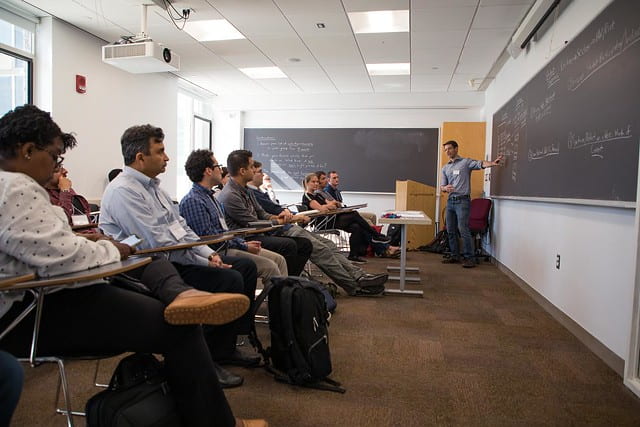Mentoring and Training Opportunities
The HU CFAR provides research, education, and training opportunities to its members across Harvard University and its affiliates. Through the Developmental Core, mentoring and training is available to support the development of early career investigators, and to enhance the quality of extramural grant applications.

Research in Progress
The HU CFAR Research in Progress meetings are held twice monthly from September until June. They provide a forum for investigators to solicit feedback and discuss HIV-related research projects with fellows, clinicians, and senior HIV investigators and biostatisticians.

First Wednesdays
Attend First Wednesdays meetings of the Bio-behavioral and Community Science Core. The group meets at Fenway Health at 4pm on the First Wednesday of the month. Sign up for the First Wednesdays mailing list for announcements.

HOPE Conference
The HIV Online Provider Education Program seeks to link HIV clinicians throughout the globe and encourage collaborative learning and the exchange of consultative advice. Each conference features a faculty discussant with expertise in a specific area of HIV medicine.

K Workshops
Are you writing a K? This annual spring workshop provides concrete advice for planning and writing a K grant, including a timeline and a sample grant as well as summary statements from both successful and unsuccessful proposals.

Mock K Review
Formal peer review panels for clinical and basic science that typically serve 2-3 fellows per grant cycle. Grant applicants and their mentors read and critique grants from each person in the group at least one month prior to the grant deadline, followed by an in-person session where fellows and their mentors receive written and oral feedback.

Mentoring the Mentor
An intensive and interactive two day workshop designed to provide faculty in HIV research with the tools for more effective mentoring.

T32 Research Training Funds
The goal of the NIH-funded T32 Research Training Program is to train MD and/or PhD investigators at MGH, BWH, HMS, Harvard Chan School, BIMC, and Boston Children’s for careers in scientific research.

Outreach and Mentoring Opportunities
A highly qualified HIV workforce is essential in order to improve the relevance of HIV research to communities most affected by HIV; facilitate creative, novel, and context-specific approaches to reaching all people at risk for and living with HIV; and ultimately end the HIV epidemic.